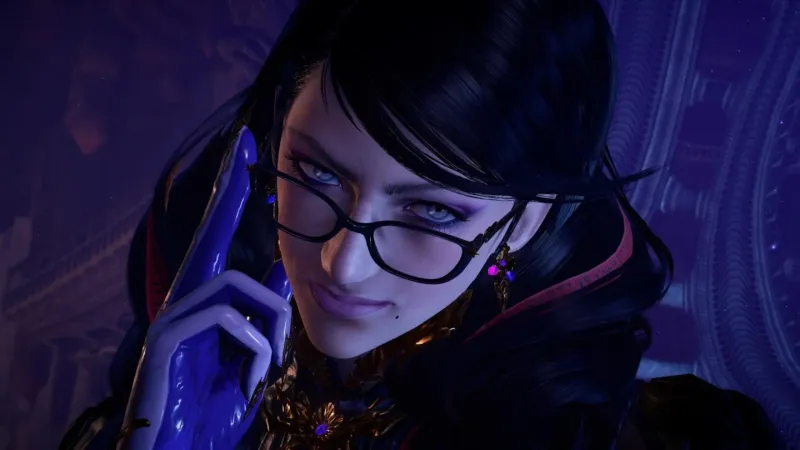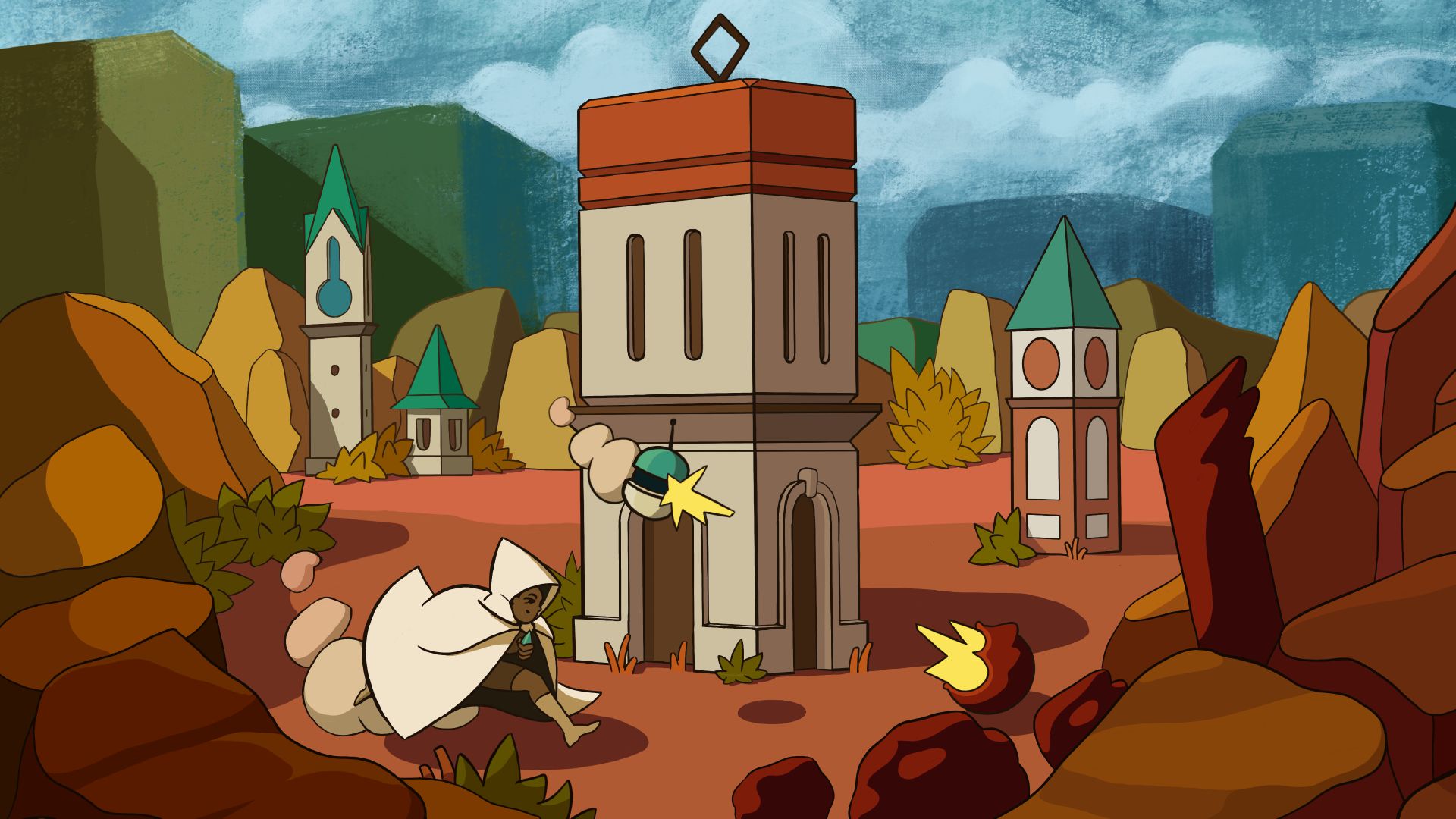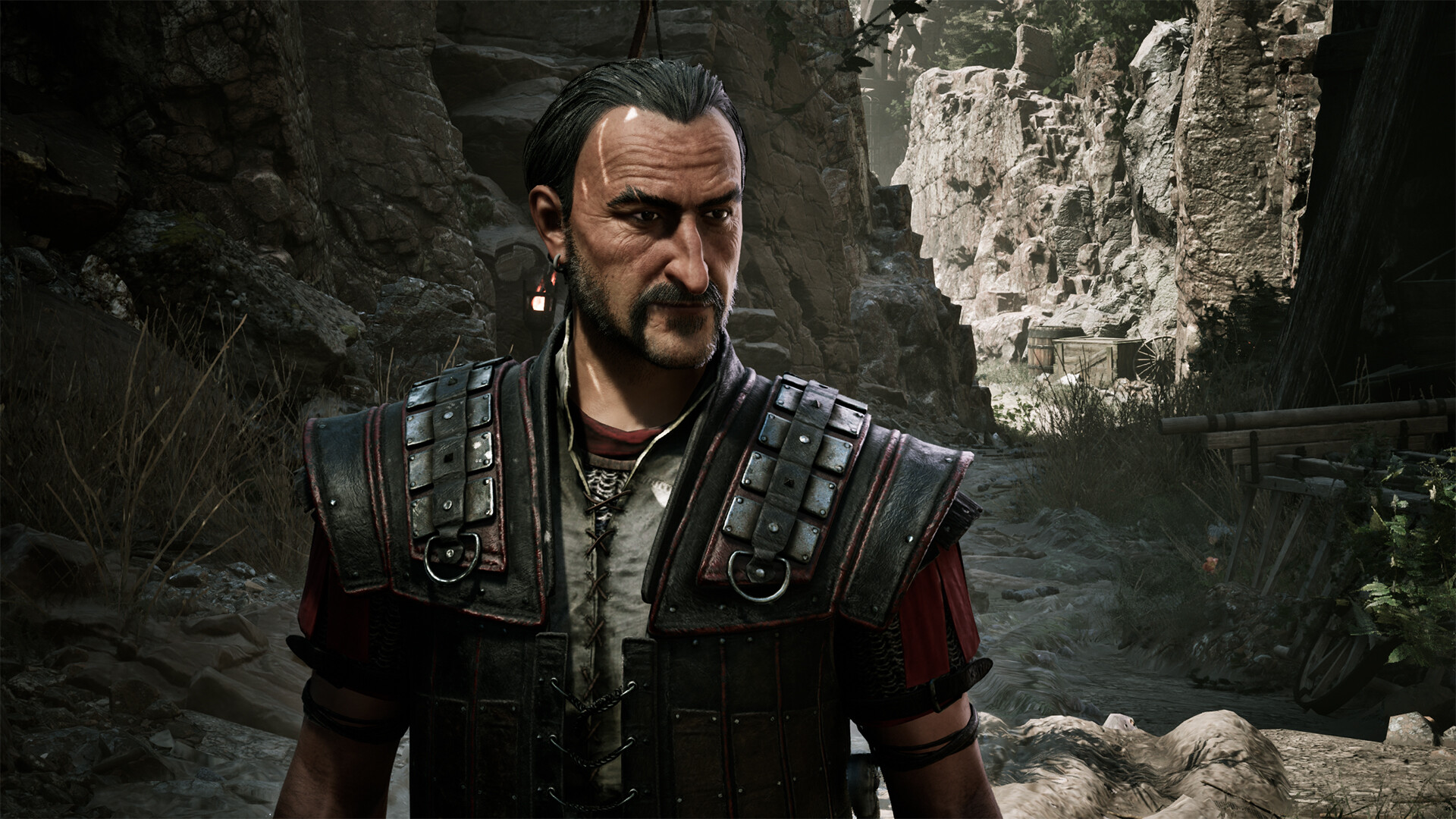
When Bayonetta 3's first gameplay trailer hit last year, her new braided hairstyle caught the attention of fans for its resemblance to the look of Cereza, the little girl who tagged along with players in the first game. Spoiler for Bayonetta 1: Cereza is the child version of Bayonetta, so perhaps our hero simply wanted to return to her adolescent roots. However, the third game's focus on the multiverse has prompted some fans to consider a more tantalizing theory. First, to provide some context, here's a (relatively) quick refresher of Bayonetta's backstory for newcomers or lapsed fans. Five hundred years prior to the events of the first game, Bayonetta, whose real name is Cereza, was born the child of an Umbra Witch and a Lumen Sage. Since the light-worshipping Sages were rivals to the darkness-wielding witches, this was viewed as a forbidden union. Cereza's mother, Rosa, was imprisoned as a result. Thus, the witches treated Cereza as an outcast during her childhood and originally banned her from learning magic (but she does anyway), though Rosa does her best to raise Cereza regardless. A young Jeanne was the only witch who showed any real kindness to Cereza, befriending her and forming a lifelong bond. Twenty years later, the witch hunts that led to the Umbran order's destruction began. Jeanne is selected to lead the coven into battle, and she chooses to duel Cereza as a final test of her abilities (much to the Umbran elders' chagrin). Angels attack the witches during this duel, and Rosa is killed. This loss causes Cereza to lose her will to fight. To protect Cereza, Jeanne seals her away at the bottom of a lake, sparing Cereza from the Umbran order's extinction. Centuries later, Cereza awakens in the modern day with her memory wiped, including her true name, which is why she adopts the Bayonetta alias. Young Cereza and Bayonetta in the first game. As the story of Bayonetta 1 unfolds, she encounters a child version of herself. Neither recognizes the other due to Bayonetta's amnesia and young Cereza believing adult Bayo is their mother, due to the resemblance. They tag along for most of the game, and it's later revealed that little Cereza was plucked from the past and brought to the present by their father and the game's villain, Baldur. We'll skip over Baldur's reason for doing this (it's a lot), but the game concludes with child Cereza being returned to her proper timeline. However, this act creates a new parallel universe where the once lonely and shy Cereza, now having experienced the love and bravery of her older self, gains the confidence to fight back during the witch hunts. Since she participates in the battle, Jeanne never seals her away, and the pair manage to fend off their attackers. There are some other big elements at play here (such as the Left Eye of Darkness), but that's the main gist of the story. Now, all of that has led fans to speculate that the witch we’re playing as in Bayonetta 3 is this alternate version of Cereza and not “prime” Bayonetta. So which witch are we getting? When I asked director Yusuke Miyata, he was cagey about giving an answer. “I can neither confirm nor deny whether this is a grown-up version of Cereza,” says Miyata. “Since this game involves the multiverse concept, she could be Bayonetta from an alternate universe who happens to look just like Cereza, or it could be the grown-up Cereza. I’d like to leave this up to players’ imaginations as they enjoy the game.” So there you have it. While it may not be a concrete answer, the fact that Miyata didn’t shut this rumor down outright means fans who believe in it can keep the hope alive. Or, at the very least, we're still playing as the Bayonetta we know and love, and Miyata doesn’t want to rain on players’ parades. It's fun to see Platinum officially acknowledge this theory, if nothing else. Do you think the alternative Cereza theory holds any water? Share your conspiracy thoughts down in the comments. For more on Bayonetta 3, be sure to visit our cover story hub for exclusive videos and features.
When Bayonetta 3’s first gameplay trailer hit last year, her new braided hairstyle caught the attention of fans for its resemblance to the look of Cereza, the little girl who tagged along with players in the first game. Spoiler for Bayonetta 1: Cereza is the child version of Bayonetta, so perhaps our hero simply wanted to return to her adolescent roots. However, the third game’s focus on the multiverse has prompted some fans to consider a more tantalizing theory.
First, to provide some context, here’s a (relatively) quick refresher of Bayonetta’s backstory for newcomers or lapsed fans. Five hundred years prior to the events of the first game, Bayonetta, whose real name is Cereza, was born the child of an Umbra Witch and a Lumen Sage. Since the light-worshipping Sages were rivals to the darkness-wielding witches, this was viewed as a forbidden union. Cereza’s mother, Rosa, was imprisoned as a result. Thus, the witches treated Cereza as an outcast during her childhood and originally banned her from learning magic (but she does anyway), though Rosa does her best to raise Cereza regardless.
A young Jeanne was the only witch who showed any real kindness to Cereza, befriending her and forming a lifelong bond. Twenty years later, the witch hunts that led to the Umbran order’s destruction began. Jeanne is selected to lead the coven into battle, and she chooses to duel Cereza as a final test of her abilities (much to the Umbran elders’ chagrin). Angels attack the witches during this duel, and Rosa is killed. This loss causes Cereza to lose her will to fight. To protect Cereza, Jeanne seals her away at the bottom of a lake, sparing Cereza from the Umbran order’s extinction. Centuries later, Cereza awakens in the modern day with her memory wiped, including her true name, which is why she adopts the Bayonetta alias.
Young Cereza and Bayonetta in the first game.
As the story of Bayonetta 1 unfolds, she encounters a child version of herself. Neither recognizes the other due to Bayonetta’s amnesia and young Cereza believing adult Bayo is their mother, due to the resemblance. They tag along for most of the game, and it’s later revealed that little Cereza was plucked from the past and brought to the present by their father and the game’s villain, Baldur. We’ll skip over Baldur’s reason for doing this (it’s a lot), but the game concludes with child Cereza being returned to her proper timeline.
However, this act creates a new parallel universe where the once lonely and shy Cereza, now having experienced the love and bravery of her older self, gains the confidence to fight back during the witch hunts. Since she participates in the battle, Jeanne never seals her away, and the pair manage to fend off their attackers. There are some other big elements at play here (such as the Left Eye of Darkness), but that’s the main gist of the story.
Now, all of that has led fans to speculate that the witch we’re playing as in Bayonetta 3 is this alternate version of Cereza and not “prime” Bayonetta. So which witch are we getting? When I asked director Yusuke Miyata, he was cagey about giving an answer.
“I can neither confirm nor deny whether this is a grown-up version of Cereza,” says Miyata. “Since this game involves the multiverse concept, she could be Bayonetta from an alternate universe who happens to look just like Cereza, or it could be the grown-up Cereza. I’d like to leave this up to players’ imaginations as they enjoy the game.”
So there you have it. While it may not be a concrete answer, the fact that Miyata didn’t shut this rumor down outright means fans who believe in it can keep the hope alive. Or, at the very least, we’re still playing as the Bayonetta we know and love, and Miyata doesn’t want to rain on players’ parades. It’s fun to see Platinum officially acknowledge this theory, if nothing else.
Do you think the alternative Cereza theory holds any water? Share your conspiracy thoughts down in the comments.
For more on Bayonetta 3, be sure to visit our cover story hub for exclusive videos and features.






